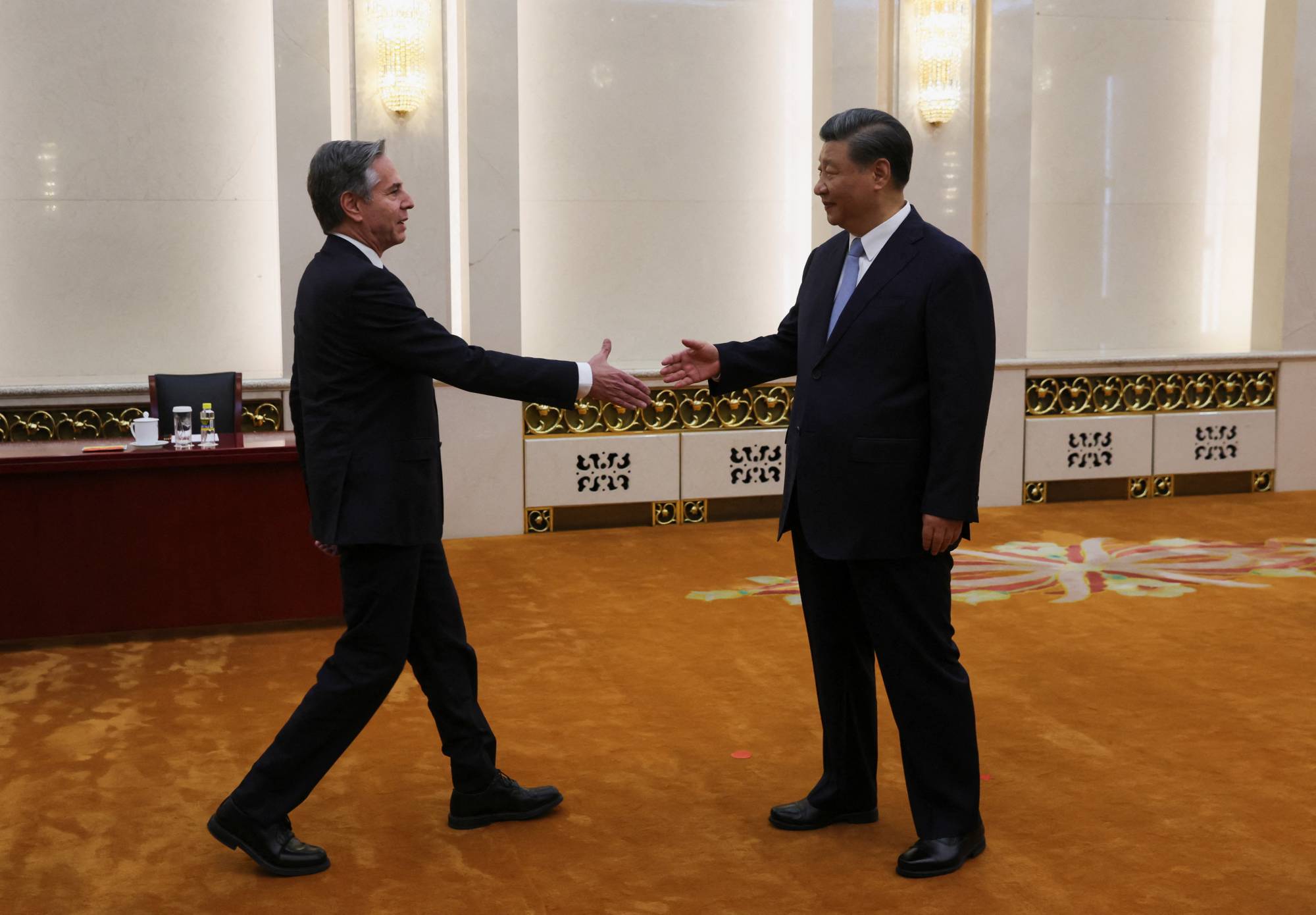The United States and China this week took a much-needed step towards repairing their relations as Antony Blinken visited Beijing, the first visit by a U.S. Secretary of State since 2018. The main takeaway from the visit, during which he met with Chinese President Xi Jinping, was their agreeing on the need for stability in ties. Mr. Xi told Mr. Blinken that the international community was “concerned” about the current state of relations and “does not want to see conflict or confrontation”. Mr. Blinken said following the talks that “both agree on the need to stabilise our relationship”. Differences, no doubt, remain, and the visit expectedly did not yield breakthroughs on contentious issues such as U.S. export curbs or Taiwan. But the very fact that Mr. Xi met with the visiting U.S. diplomat was a clear sign of progress given the cancellation of Mr. Blinken’s visit in February and the rancour that followed the shooting down of the Chinese “spy balloon” over the U.S. As Mr. Blinken put it, the objective was to “strengthen high-level challenges of communication, to make clear our positions and intentions in areas of disagreement” and to explore areas where both “might work together …. on shared transnational challenges”. Asked in Beijing how the Biden administration will continue with its attempt to fix relations with China as the domestic discourse likely worsens in the lead up to the 2024 elections, he argued that continued engagement was the best avenue to protect U.S. interests, including on trade.
The challenge now is whether they can sustain this effort at arresting the slide and keep diplomatic channels open, even when the next crisis inevitably emerges and against the backdrop of increasingly heated domestic political rhetoric. As Mr. Xi told Mr. Blinken, countries do not want to “choose sides”. This is especially true in the region, where nations continue to have deep economic linkages with China and close security ties with the U.S. That Beijing and Washington are appearing to agree on the need for stability should be welcomed, including by India. While shared concerns about China may be a binding factor, the India-U.S. relationship today has acquired a deeper and broader scope, which will be affirmed this week during Prime Minister Narendra Modi’s state visit, in new agreements expected in the defence domain and in technology cooperation. In the not-too-distant past, high-level visits from Washington to Beijing may have evoked some unease in New Delhi, particularly during the short-lived “G2” phase during the Obama administration, but that is no longer the case.

